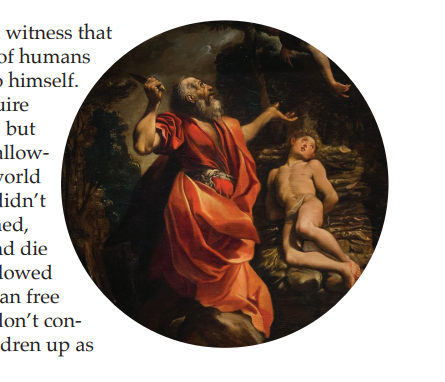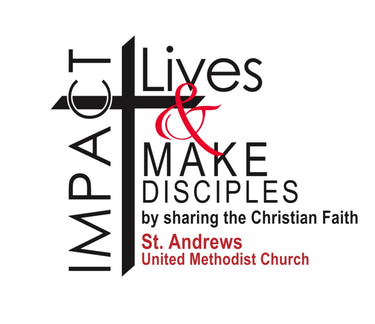Our Lenton Season
Lent is a period of preparation before celebrating the Lord’s Resurrection at Easter.

Annual Lenten Bible Study
All Sunday School classes are to join this study together!
Lent is a period of preparation before celebrating the Lord’s Resurrection at Easter!
“Around The Lenten Circle”
During Sunday School @ 9 AM
Phone & Video Conference
View and download materials below:
Until March 24, 2024
February 25, 2024 • Second Sunday of Lent • Year B
This is my Son, the Beloved. Listen to him. Mark 9:7
OPENING PRAYER:
Reader: Gracious God, we gather again to share our Lenten journeys.
All: Help us to see your presence in our lives.
Reader: May this time together strengthen our desire to follow the path of life.
All: Give us strength to continue the journey, even when we can’t see where it is leading. Amen
SHARING
Last week, our group focused on the metaphor of journeys, reflecting on how we have chosen the paths we are on, and how we can listen for God’s invitation to follow a particular path. We also considered some commitments in the areas of prayer, fasting, and almsgiving for the Lenten season.
1. Did you have to make a decision (big or small) this past week in which you more intentionally tried to choose the path that God wanted you to take? Please share.
2. How was your first week of Lent?
LISTENING: GENESIS 22:1-2, 9-13, 15-18
After these things God tested Abraham. He said to him, “Abraham!” And he said, “Here I am.” He said, “Take your son, your only son Isaac, whom you love, and go to the land of Moriah, and offer him there as a burnt offering on one of the mountains that I shall show you.” When they came to the place that God had shown him, Abraham built an altar there and laid the wood in order. He bound his son Isaac, and laid him on the altar, on top of the wood. Then Abraham reached out his hand and took the knife to kill his son. But the angel of the Lord called to him from heaven, and said, “Abraham, Abraham!” And he said, “Here I am.” He said, “Do not lay your hand on the boy or do anything to him; for now I know that you fear God, since you have not withheld your son, your only son, from me.” And Abraham looked up and saw a ram, caught in a thicket by its horns. Abraham went and took the ram and offered it up as a burnt offering instead of his son.
The gospels are a beautiful witness that God doesn’t ask anything of humans that God isn’t willing to do himself. Ultimately God didn’t require Abraham to sacrifice Isaac, but God “sacrificed” Jesus by allowing him to come into our world and become human. God didn’t intend for Jesus to be harmed, or plan for him to suffer and die exactly as he did, but he allowed it because he respects human free will. In the same way, we don’t consider offering our own children up as 2-3 burnt sacrifices, but we do allow them to go to school even though they may get hit by a car on the way. We allow them to move away from home even though we may lose them to a different part of the country.
Paul points out in the second reading today that God did not withhold his own beloved Son. God would not allow Abraham’s child to be hurt, but he allowed his Son to become human, knowing that he would suffer intensely at the hands of humans, who sometimes do terrible things to each other.


We allow them to get married, even though that means “sacrificing” them to another person who may or may not protect them as much as we can. We are willing to do all these things because we love them and we know that ultimately they don’t belong to us. Maybe Abraham had some sense of this when he was willing to follow God’s directive. Thankfully, he didn’t have to endure a terrible outcome and he learned that God does not want harm to come to any of his children.
SHARING
1. What do you make of this story? Can you find any lesson in it?
2. Have you ever felt compelled to make a decision that seemed so irrational or counter-intuitive that you couldn’t explain it to loved ones? What came of it?
3. Have you ever sacrificed something that you loved (a home, a relationship, a job, a possession, etc) for a greater good? Please share.
REFLECTION: MARK 9:2-8
It is difficult to imagine this Gospel scene when Jesus took Peter, James, and John up a mountain and was transfigured in front of them. There’s nothing in our experience of seeing someone glow in dazzling white clothes brighter than any white we can imagine. Nor have we had visions of two people who lived long ago appearing in front of us like Moses and Elijah did with Jesus. Probably we would be terrified as the three apostles were. Maybe we would even wonder if we were losing our minds.
It gets even stranger when the three apostles hear a voice from a cloud telling them to listen to “my beloved Son.” At that point, they find themselves left alone with the same Jesus they have always known.
Obviously, the experience is something the apostles couldn’t have understood with their minds, at least not before Jesus’ resurrection from the dead. Before this scene, the apostles-as well as pretty much everyone else Jesus was meeting-were trying to figure out just who he was. He appeared human to them in every other way except for the incredible miracles he was performing.
The Transfiguration probably left the impression that although Jesus was more than just an incredible human being, the apostles still didn’t fully understand who he was. Yet they were being asked to trust in him, to listen to him, and to follow him.
"Six days later, Jesus took with him Peter and James and John, and led them up a high mountain apart, by themselves. And he was transfigured before them, and his clothes became dazzling white, such as no one on earth could bleach them. And there appeared to them Elijah with Moses, who were talking with Jesus. Then Peter said to Jesus, “Rabbi, it is good for us to be here; let us make three dwellings, one for you, one for Moses, and one for Elijah.” He did not know what to say, for they were terrified. Then a cloud overshadowed them, and from the cloud there came a voice, “This is my Son, the Beloved; listen to him!” Suddenly when they looked around, they saw no one with them any more, but only Jesus.
SHARING
1. When you think of Jesus, do you think of him more as human or as divine? How so?
2. If you were one of the apostles at the Transfiguration, what might you have been thinking or feeling? How would it have changed how you thought of Jesus?


3. Sometimes when people didn’t understand Jesus or know what to believe about him, they had to rely on the faith of others and their experiences of Jesus. Do you have people in your life who help you to understand Jesus more? Who are they, and what have they taught you about him?
CLOSING PRAYER
Reader: Gracious God, you sent Jesus to show us your compassion and love for us.
All: Help us to listen to him and to trust that he wants only goodness and grace for everyone.
Amen.
Copyright © 2024 Ann Naffziger. All rights reserved. Reprinted with permission. Published by The Pastoral Center / PastoralCenter.com. Scripture texts in this work are taken from the New American Bible, revised edition © 2010, 1991, 1986, 1970 Confraternity of Christian Doctrine, Washington, D.C. and are used by permission of the copyright owner. All Rights Reserved. No part of the New American Bible may be reproduced in any form without permission in writing from the copyright owner.
40 Days with Jesus . . .



